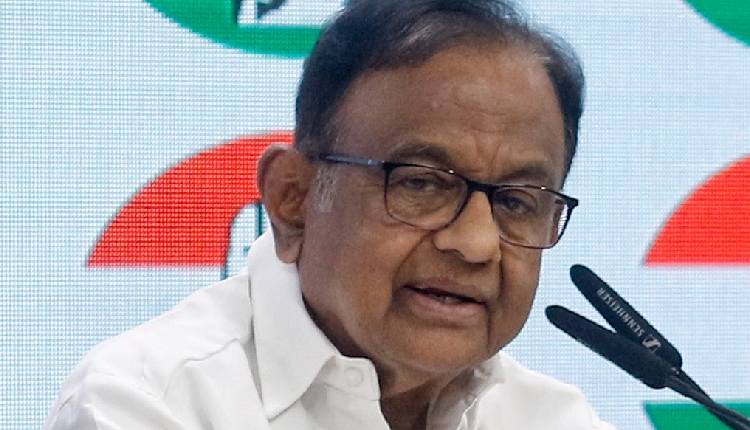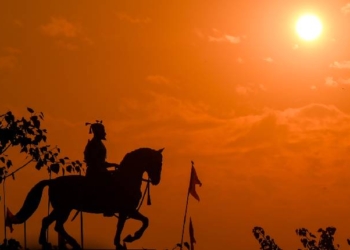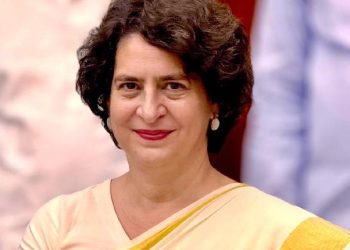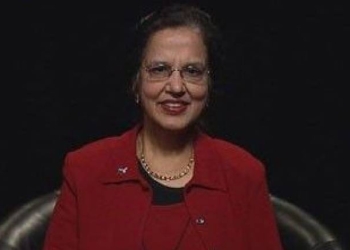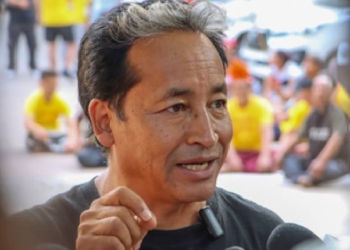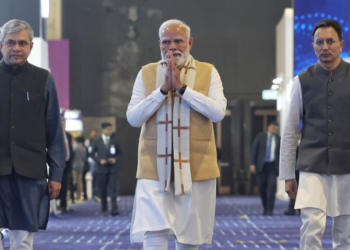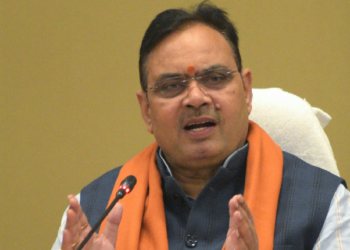New Delhi: As Mumbai terror attack accused Tahawwur Hussain Rana was extradited from the United States to India, Congress on Thursday criticised the Narendra Modi government, asserting that the extradition was the result of “mature, consistent, and strategic diplomacy” initiated under the UPA government, not a breakthrough achieved by the current administration.
Congress leader and former Home Minister P Chidambaram expressed his satisfaction over Rana’s extradition but emphasised the importance of understanding the full history behind the process.
He argued that while the Modi government sought to take credit for the development, the truth was far from their claims.
“I am happy that Tahawwur Hussain Rana, one of the prime accused in the 26/11 Mumbai terror attacks, was extradited to India. However, it is crucial to tell the complete story. The extradition is the result of over a decade of hard, diligent, and strategic diplomacy that was initiated, led, and sustained by the UPA government, in coordination with the US,” said Chidambaram.
The Congress leader traced the origins of the extradition efforts back to 2009 when the UPA government, under Prime Minister Manmohan Singh, took a significant step by registering a case against Rana and his co-conspirator, David Coleman Headley, in New Delhi.
He noted that the first major breakthrough came that year when Canada, under the UPA’s diplomatic efforts, confirmed intelligence cooperation with India.
Rana was arrested by the FBI in Chicago in 2009 for his role in plotting a failed terror attack in Copenhagen, but a US court acquitted him of direct involvement in the 26/11 attacks in 2011, convicting him instead for his role in other terror plots.
Despite the setback, Chidambaram emphasised that the UPA government consistently worked on the issue through institutional diplomacy and legal channels, maintaining pressure on the US for Rana’s extradition.
He highlighted that in 2011, a three-member NIA team visited the US to question Headley, and under the Mutual Legal Assistance Treaty (MLAT), the US provided crucial evidence to India, which was included in the NIA’s chargesheet filed later that year.
He added that non-bailable warrants were issued against Rana, and Interpol red notices were put in place.
“In 2012, External Affairs Minister Salman Khurshid and Foreign Secretary Ranjan Mathai made strong representations to US officials, urging them to expedite Rana and Headley’s extradition. This diplomatic pressure continued, with India’s Ambassador to the US, Nirupama Rao, raising the issue repeatedly. This is an example of handling sensitive international matters with measured diplomacy, not grandstanding,” he said.
Chidambaram further pointed out that even after the 2014 change in government, the process set in motion by the UPA remained active.
He noted that in 2015, Headley offered to become a government witness, and in 2016, a Mumbai court granted him clemency to strengthen the case against other terror operatives.
By 2018, an NIA team had gone to the US to clear legal obstacles regarding Rana’s extradition, and in 2019, it was revealed that Rana would complete his sentence in the US by 2023.
He criticised Prime Minister Modi’s attempt to claim credit for the extradition, particularly after Rana’s release on health grounds in June 2020.
“When Rana was released on health grounds in June 2020, the Indian government immediately sought his extradition. The Biden administration supported India’s request, and in May 2023, a US court upheld it. Rana filed several petitions against the extradition, all of which were rejected, including one in the US Supreme Court,” Chidambaram added.
In February 2025, following the change in US administration, both President Joe Biden and Prime Minister Modi sought to take credit for the extradition. However, Chidambaram clarified that this achievement was the result of years of diplomatic effort started during the UPA government.
“By 17 February, Indian authorities had confirmed that Rana had been involved in the 26/11 conspiracy since 2005, working closely with Lashkar-e-Taiba and the ISI. Finally, on 8 April 2025, US authorities handed Rana over to Indian agencies, and he arrived in New Delhi on 10 April,” Chidambaram added.
The Congress leader concluded by asserting that the Modi government had neither initiated the extradition process nor achieved any new breakthroughs.
Instead, the extradition was a result of the diplomatic groundwork laid by the UPA.
“Let the facts be clear: The Modi government neither initiated this process nor secured any new breakthroughs. It has only leveraged the institutional framework built by the UPA, demonstrating that when India acts with seriousness, international cooperation can bring even the world’s most sophisticated criminals to justice,” Chidambaram concluded.
(IANS)




